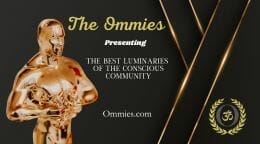The Power of Words
The light of hope, and the dream of a visionary…
By Trevor Taylor
The simple power of Words….
At a lunch the other day, a law student asked me if the choice of words one uses could have completely different outcomes. My inner compass spun and signposted me to two of the most inspiring speeches I have enjoyed reading. I turned to him and said “Oh, without doubt, Nehru and Martin Luther King – history’s wordsmiths” Later that day I went home and jotted down the reasons for my answer, so that I could discuss it with him at the next lunch…
……”The light has gone out and there is darkness everywhere”.
With these simple spoken English words, broadcast on Radio on 30th January 1948, an orator more at home in Hindi or Gujurati, Jawarharlal Nehru, brought a Nation of millions of Indians, the stark realisation that the beloved Leader Ghandi ‘was no more’. Ghandi’s assassination on that day marked an indelible moment in time barely a month into India’s Independence.
The striking feature of Nehru’s speech was that he avoided direct reference to assassination, sorrow, a gunshot, and sudden death, and used words of sweetness and exaltedness, because anything more direct and stark would not do justice to the unspeakable grief of the Indian people at that tragic time in their history.
In his speech he then turned those gentle words around on themselves, by continuing “Yet I was wrong, ….the light that has illuminated this country these many, many years, will illuminate this country for many more years, and a thousand years later this light will still be seen in this country”
I believe it is no coincidence that Nehru was following the teachings of the Indian scholar Kautila four hundred years before the Birth of Christ, that sweetness, and lucidity, coupled with connection, are the amongst the essences of effective communication.
Nehru used the principles proclaimed all those centuries ago, to awesome and immediate effect, transcending the negative and harsh emotions that we in the western world would in all likelihood have uttered at such tragic a time.
And Nehru did it for a reason, for anything more emotive, would have had inflammatory and disastrous consequences in a Nation deeply divided and troubled at that time where violence was never far from the surface.
In the fifth century, the Sanskrit philosopher Bhartrahari took Kautila’s theories a step further by finding a principle of communication he called ‘dhvani’ where he suggests that in matters of grief and personal sorrow, it is perhaps better to use words of poetry and light to describe emotions that are too profound and intense to be uttered in the simple day to day vernacular of the moment.
The English Language was only formally introduced to India in the 17th Century, yet in his simple speech to the Indian Nation, Nehru bought together the concepts of Indian scholars and philosophers of the past, married them with the English language of the time. He skillfully bought the most tragic of news to the Indian people in words of sheer poetry, while in the same breath, giving them hope for the future, avoiding a backlash of violence and disorder that so easily could have resulted.
The English Language in India had finally emerged from its position of ‘Intrusive neighbor’ in Indian Culture, to mainstream recognition as a universal shared means of expression in a continent of multi-languages, accents and dialects.
Which now brings me to Martin Luther King. In his benchmark speech ‘I have a dream’ he bought into mainstream English speaking consciousness the ‘call and response’ rhythm of Pentecostal Church Services, and with simple poetic and rhythmic words and pauses, he changed the course of the Civil Rights movement in America forever.
The call to arms, civil unrest and violence used by activists before him were rejected, and in simple but magically powerful prose, he touched the heart of a nation, by evoking the imagery of a dream – a dream that could give hope and reconciliation to millions.
Both Nehru and Martin Luther King gifted the English language with the power, through the simple choice of inspired words, skillfully crafted, and devoid of challenging rhetoric, to change the course of destiny and change lives. And indeed, to help position the English Language in a pivotal position in History.
What is fascinating is that a language that was first expressed in writing in England 400 years before the birth of Christ, with a simple inscription on the ankle bone of a roe deer found at a cemetery in Caistor-by-Norwich, in Norfolk, developed through the Anglo Saxon futhorc (First alphabet), honed in Medieval Manuscripts and Books, romanticized in the middle English period, and playfully teased by Shakespeare, should be merged with ancient Indian Philosophy to such great effect by Nehru, and given the currency of gentle activism by Martin Luther King, in both cases, touching and healing their respective countries.
Click HERE to Connect with your Daily Horoscope!
In both cases, the choice of words chosen could have had two outcomes. In both cases the choice of words used were crafted to produce the desired outcomes of hope in grief, and unification founded on a dream. I think I have, in the thoughts I have put together here, found the answer to that student’s question.

(pictured – The Anglo Saxon Futhorc – First Alphabet)
OMTimes Magazine is one of the leading on-line content providers of positivity, wellness and personal empowerment. OMTimes Magazine - Co-Creating a More Conscious Reality








